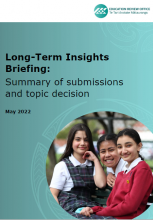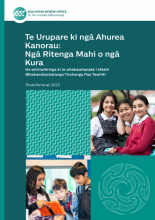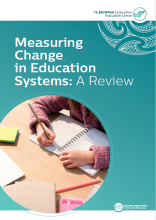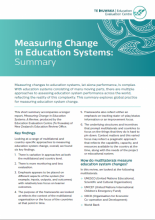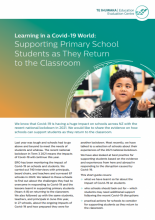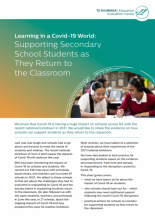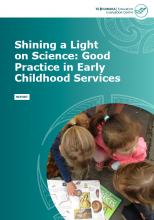Long-Term Insights Briefing: Summary of submissions and topic decision
This document provides a summary of submissions and a decision on the subject matter and scope of the Education Review Office’s 2022 Long-Term Insights Briefing.
Thank you to everyone who took the time to provide a submission. Your input will help build and strengthen our Long-Term Insights Briefing paper.
